Google Play Music has a lot going for it:It's not constantly removing features like Spotify How to restore the best features Spotify has removed How to restore the best features Spotify has removed Spotify may be the best music streaming service available, but it has thrown some features in recent years. Find out how to bring back the best lost features of Spotify forever. Read More
However, one area where it falls behind some of its competitors is on the desktop. While the Spotify desktop player is the crown jewel of the company's software selection, Google Play Music doesn't have a desktop player.
Fortunately, there is a fantastic third-party solution that you can turn to. While its name, Google Play Music Desktop Player, is neither flashy nor inspiring, the app itself is quite the opposite.
In this article, we investigate the desktop player that all Google Play Music users need to get started.
Google is probably staying true to its roots. It seems to contemplate a world where everything is done through a web browser.
However, it's hard to argue that a modern music streaming service shouldn't have a standalone desktop app. They generally allow the service provider to offer a richer and more refined experience. Users love them, with Spotify claiming that 45 percent of all listening is done through its desktop app. The Web Player Everything is wrong with the new Spotify Web Player Everything is wrong with the new Spotify Web Player Did you know that Spotify has given its web player a makeover? Well, we say "upgrade", but this feels more like a downgrade. This is why. Read More
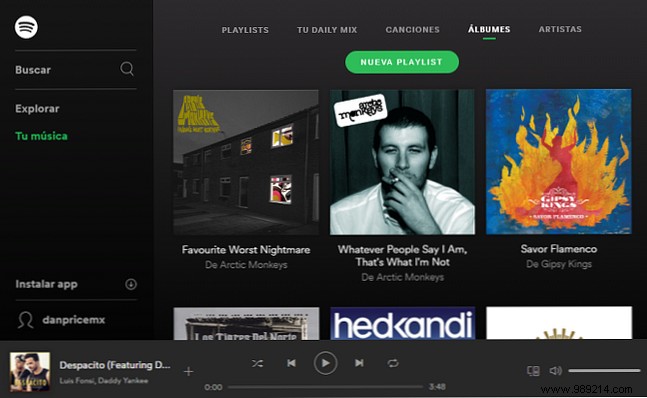
Also, being forced to do everything in one browser tab introduces potential hassles and problems for the listener. For example, you can't use keyboard shortcuts to control your music, and you have to go through the hassle of finding the right tab every time you want to change what you're listening to.
You also run the risk of accidentally closing the wrong tab and cutting off your audio, and your RAM and CPU usage consuming too much RAM or CPU. Here's how to find out which tab is the culprit. Read More
Right now, Google only offers two features 7 Cool Things You Can Do With Google Play Music 7 Cool Things You Can Do With Google Play Music In this article, we'll introduce you to some cool things you can do with Google Play Music that you might both beginners as well as veterans may not know, but they should use it. Read More
Google Play Music Desktop Player (GPMDP) is a third-party desktop player for Google Play Music. It is available on Windows, Mac and Linux. It runs entirely in HTML5, so you won't need to install Adobe Flash. Does Adobe Flash need to die? [MakeUseOf Poll] Does Adobe Flash Need to Die? [MakeUseOf Poll] We want to know what you think about Adobe Flash and, in particular, if you think Flash should die. Welcome to this week's MakeUseOf poll. Read more.
The app is completely open source, introduces several new features you won't find in the web player, and is packed with customization options (more on these shortly). Most importantly, it runs Google Play Music within its own separate, lightweight, standalone framework. It means your computer won't use up system resources to play music, allowing you to get on with your day without fighting a slow machine.
Once you have downloaded and installed GPMDP, launch the app and fill in your Google credentials.
The first time you load it, Google will recognize your computer as a new device, even if it's your main machine. As such, you will have to verify yourself. Google will send a notification to your phone. Click Yes in the phone notification, and GPMDP will load.
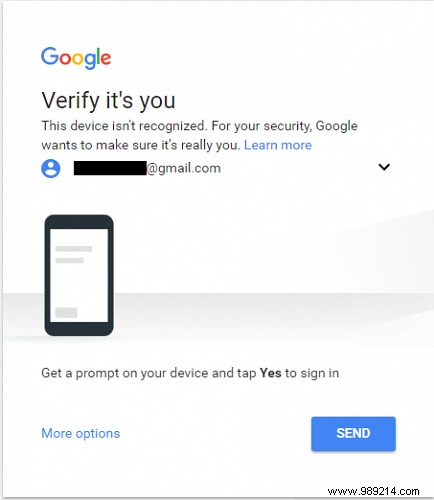
At first glance, you might be surprised to see that the app looks identical to the browser version, but that's intentional. The basis for the software is the web application and it works the same way. You'll Find Artists 7+ Easy Ways to Discover New Music You'll Love 7+ Easy Ways to Discover New Music You'll Love The depth and breadth of music to be discovered these days is mind-boggling. The problem is knowing where to look. We're here to help with an amazing list of resources just for you. Read More
Dig a little deeper, though, and you'll find out why so many Google Play Music users swear by this open source software.
Covering the myriad of features and options is beyond the scope of this article, so I'll give you a few “headlines” that all new users should know.
If you want to take a look at what's available, expand the menu on the left side of the GPMDP window and click Desktop Settings .
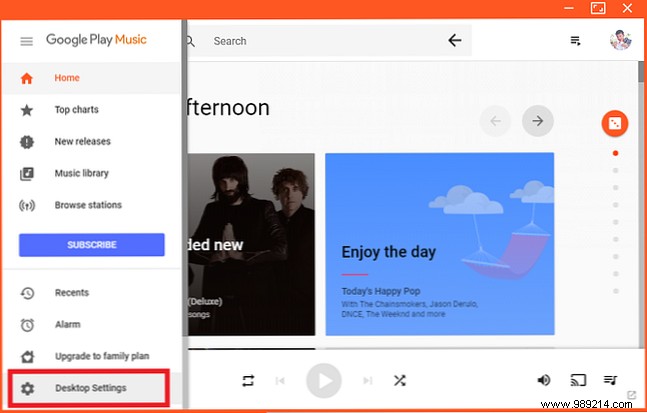
You'll find six tabs of options, with plenty of settings and customizations available to you.

Here are five of the best features.
GPMDP places an icon in the system tray (Windows) or Dock (Mac). The icon means that your music can continue to play even when you close the main GMPDP application. It also allows you to play/pause, skip tracks, assign a thumbs up/down to a song, and change your audio output device.
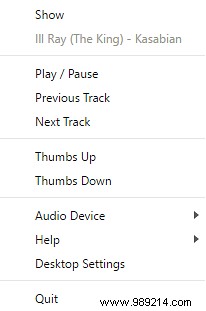
In Windows 10, the app can also display a “Now Playing” notification on the lock screen Cool things to do with the Windows 10 lock screen Cool things to do with the Windows 10 lock screen The Windows lock screen 10 is more than just a fancy screen to cover the login screen. Let us show you everything it can do and how you can customize it or disable it. Read more.
You might think that Last.fm scrobbling is a staple of any streaming music service or desktop music player, but you'd be wrong. Google does not offer it as a native feature of Play Music. Fortunately, GPMDP has Last.fm integration. You will finally be able to track all your listening habits.
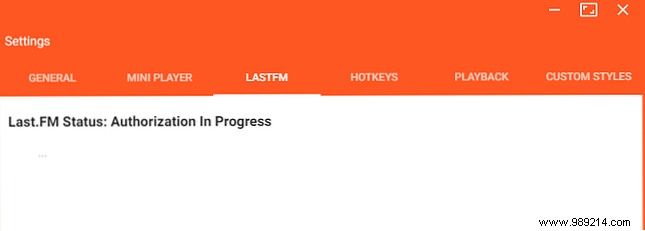
The developer of GPMDP has also created a remote control app for Android. There is an iOS version coming soon.
The mobile app works seamlessly with the desktop app. It allows you to control music volume using your phone's volume keys, search your library, queue songs, create playlists, and perform basic functions like pausing and skipping tracks.
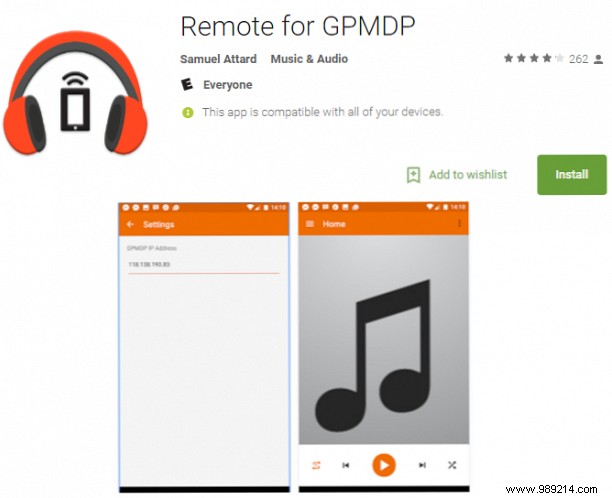
As I mentioned earlier, Google's insistence on making you use a web app means that the hotkeys that Spotify users rely on every day aren't available to Google Play Music subscribers.
GPMDP fixes this particular annoyance. You can create a hotkey for up to nine individual actions, including play/pause, volume up/down, and “Show now playing”.
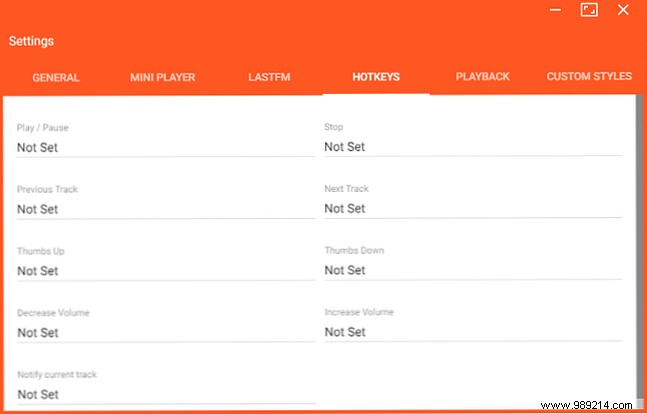
Do you find Google's choice of orange and white too flashy to look at all day, every day? Thanks to GPMDP, you can add your own themes using CSS. If you are confident with the programming language, you can create your own. If not, there are many lots available for download on the web.
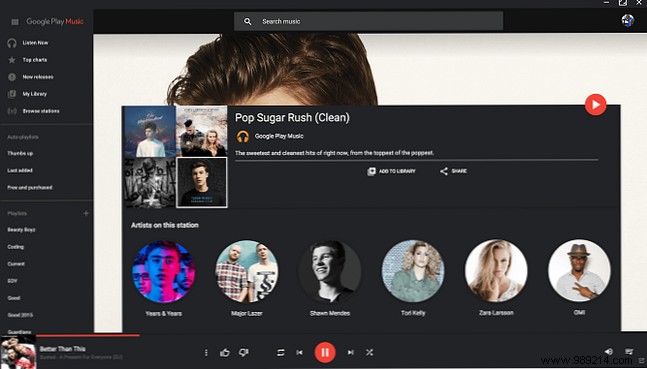
You should now have a basic understanding of what Google Play Music Desktop Player is and how it can dramatically improve the experience of using Google's music streaming service.
We would love to hear your opinion. Do you use the application to listen to Google Play Music on your desktop? What features do you think are the best? What else could the developer introduce to further improve the software?
As always, you can leave your thoughts and feedback in the comments section below!